Mental training can help athletes and their sports performance. Athletes use mental training to focus and achieve their goals. They use different techniques, such as visualization, to improve their performance.
Mental conditioning for athletes is a system tailored specifically for people who want to improve their results. It includes mental toughness training for sports and other techniques that are designed specifically for athletes. For example, mental toughness exercises for athletes might be different from mental toughness exercises for soldiers. The idea is to use a specific system and adjust it for the client which in this case, is the athlete.
Mental training for peak performance is used by various athletes in all sports fields. Want to become a figure skater or high school golfer, improve your bench press, or become an American professional basketball player or American football star? Then better acknowledge the importance of psychological skills in sport and find out what mental conditioning for athletes is.
Athletic mental training can help improve the performance of athletes and coaches by using sport psychology intervention. Sports mental training includes reading science news, applying modern sports medicine in practice along with using mental toughness training for sports purposes. The list isn’t exhaustive. Athletes and coaches use mental coaching to perform self-assessment and take another step toward peak performance, improve the athlete’s mental health, and create a cutting-edge program for athletes and for the team athletic trainer. Mental training for peak performance is common among athletes and coaches although it’s not something popular on social media so if you want to learn about mental coaching for athletes you better turn your mobile phone camera off and start reading carefully instead of posting pictures on Instagram!
Table of Contents
- 1 What is Mental Training?
- 2 What Can Mental Training Do For Me?
- 3 Successful Mental Coaches
- 4 Mental Toughness Training for Sports
- 5 Mental Training for Peak Performance
- 6 What Are Common Mental Training Techniques?
- 7 How Do I Get Started with Mental Training?
- 7.1 Mindful Sport Performance Enhancement
- 7.2 Use Positive Self-Talk and Mental Imagery
- 7.3 Goal Setting
- 7.4 Concentration Development
- 7.5 Arousal Control
- 7.6 Learn Confidence-Boosting Techniques
- 7.7 Improve Your Mental Toughness to Benefit Your Sports Performance
- 7.8 Qualities of Mentally Tough Athletes
- 7.9 Building Champion-Level Mental Toughness
- 8 How Mental Coaches Can Add More Value To Your Mental Training?
What is Mental Training?
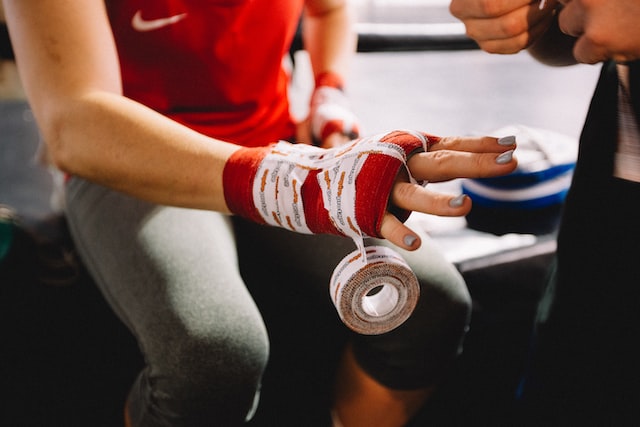
Mental training for peak performance is the process of preparing your mind for competition. It’s about learning how to focus and stay calm under pressure, controlling your emotions, and building mental toughness.
Mental training can help you:
- Perform your best when it matters most
- Handle the nerves and pressure of competition
- Bounce back from setbacks
- More confident
- More resilient
- Less likely to choke under pressure
- Able to perform at your best when it matters most
Mental training is important because it gives you a mental edge over your opponents. It’s the difference between winning and losing.
There are a number of different ways to do mental training. Here are some of the most common and effective methods:
Visualization is a powerful mental training technique. It involves picturing yourself succeeding in your mind. For example, if you’re a basketball player, you might visualize yourself making the game-winning shot. Visualization can help you build confidence and feel more prepared for competition. It is a part of mental toughness training for sports.
Relaxation and breathing exercises can help you stay calm under pressure. These exercises help you control your emotions and focus on the task at hand.
Positive self-talk is a way of talking to yourself in a positive and motivating way. It’s about replacing negative and self-doubtful thoughts with positive and empowering ones. For example, instead of thinking “I can’t do this.”, you would tell yourself “I can do this.” Positive self-talk can help increase your confidence and performance.
Mental training can help athletes perform better in a number of different ways.
First, mental training can help you stay calm and composed under pressure. This can give you a psychological advantage over your opponents.
Second, mental training can help you control your emotions. This can help you stay focused and avoid making mistakes.
Third, mental training can help you bounce back from setbacks. This can help you keep moving forward in your career.
Fourth, mental training can help you stay positive and motivated when things get tough. This can help you stay focused and confident in the face of adversity.
Finally, mental training can help you develop mental toughness. This is the ability to handle difficult situations calmly and effectively.
In brief, mental training is all about preparing your mind and body for the challenge ahead so regardless If you are preparing for the Winter Olympics as a figure skater or are an athletic trainer who wants to improve the performance of their athletes, I would recommend going through at least a couple mental toughness exercises for athletes so you can find out for yourself how much of a difference it can make.
Sports Psychologists Explain how Mental Training Can Help Athletes Perform Better
Sports psychologists have long understood the importance of mental training for athletes. Their sport psychology expertise confirms that mental exercises do work. The mind can have a powerful influence on how well an athlete performs. Mental training can help athletes control their thoughts and emotions, focus on the task at hand, and manage stress and anxiety.
In the field of sport psychology, mental training is commonly known. It is because mental training helps not only athletes but can benefit practically anyone from an entrepreneur to an American football player. Science news spread around the globe fast and sports medicine is no exception to that. Mental coaching for athletes is getting more and more popular, thanks to people like Craig Sigl, who is a mental toughness coach.
Mental training is not just about thinking positive thoughts. It also involves learning how to deal with setbacks and failure. Mental training can help athletes stay motivated and focused on their goals, even when things are not going their way.
The benefits of mental training are clear. Athletes who are mentally prepared are more likely to perform at their best when it matters most. For any athlete who wants to take their performance to the next level, mental training is essential and recent sport science news seem to confirm that.
How Mindfulness Training Can Give Elite Athletes a Mental Edge?
Mindfulness is a form of meditation that allows you to focus on the present moment and become aware of your thoughts, feelings, and sensations. Sport psychology studies have shown that mindfulness can improve mental health, reduce stress, and boost cognitive performance. Recently, mindfulness has been gaining popularity among elite athletes as a way to gain a mental edge over their competition.
Athletes who train in mindfulness learn to control their thoughts and emotions, which leads to improved focus and concentration. In addition, mindfulness can help athletes to cope with anxiety and pain. Some studies have even found that mindfulness can improve athletic performance by increasing strength, endurance, and recovery time.
Whether you’re an elite athlete or just starting out, mindfulness training can give you a mental edge. By learning to control your thoughts and emotions, you can improve your focus and concentration.
What Mental Training Programs Do Athletes Use to Get Them in the Zone?
Mental toughness exercises for athletes don’t just teach athletes how to be less sensitive to pain and negative thoughts. They also teach them how to perform at their best regardless of the circumstances.
Mental training programs help athletes get in the zone by teaching them how to focus their attention, manage their emotions, and develop a positive mindset. These programs often include visualization exercises, which help athletes see themselves succeeding in their competition. Mental training can also help athletes learn how to cope with pre-game nerves and properly utilize positive self-talk. By helping athletes develop these mental skills, mental training programs give them an edge over their competition.
Mental skills training improves the chances of getting in the zone when needed. Through the practice of meditation, relaxation techniques, deep breathing, and other techniques, mental skills training helps athletes develop a strong mind-body connection, deep focus, and one-pointedness. It can even aid in fixing mental health issues but in the field of sport psychology, it is recommended that if one suffers from poor mental health, they better start working with a sport psychologist instead of trying to fix it themselves. Mental skills training can, indeed, make you mentally tougher but if you’re suffering from serious mental health issues, then it’s always better to get a professional sport psychology expertise as it’s the sport psychologist’s work to help burned-out athletes gather their inner strength. If you want to learn more about mental health, you can visit the British Journal of Sports Medicine, Association for Applied Sport Psychology, or American Group Psychotherapy Association websites.
What Can Mental Training Do For Me?
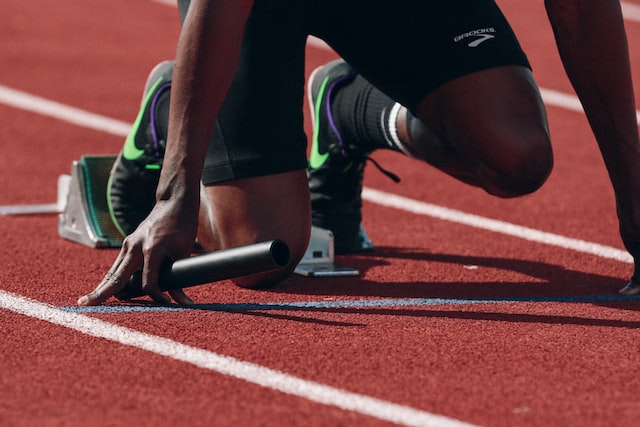
First of all, if you’re the kind of person who answers phone calls in the gym, then you probably need to sort out your priorities before deciding to work with a mental coach. Before trying to go through a cutting-edge program or hiring a mental conditioning coach, ask yourself this one, simple question: “Is this actually important for me?”. If yes, then start planning how can you begin working on yourself to prepare for your first mental conditioning for athletes program.
Mental training can do a lot for you. It can help improve your focus, concentration, and attention span. It can also help you learn how to better control your emotions, manage stress, and deal with anxiety. Mental training can also help boost your memory and cognitive skills. Also, you don’t need to be preparing for the Winter Olympics to benefit from mental coaching for athletes. Developing psychological skills in sport is just as important for beginners as it is for professional athletes.
There is a lot of evidence to suggest that mental training can improve your sports performance. Mental training can help you develop techniques to control your thoughts and emotions, which can in turn help you focus better and perform at your best when it matters most.
One way to think of mental training is as a way to build mental toughness. Mental toughness is the ability to push through difficult situations and keep going even when things are tough. This is an essential quality for any athlete who wants to be successful.
Mental training can help you develop other important qualities for success in sports, such as confidence, resilience, and focus. Confident athletes are more likely to believe in their abilities and perform at their best when it counts. Resilient athletes are able to bounce back from setbacks and continue working hard towards their goals.
Also, remember that mental toughness exercises for athletes can be used by anyone, including you. You don’t need to be a professional athlete to go through the protocol and get the benefits.
Successful Mental Coaches
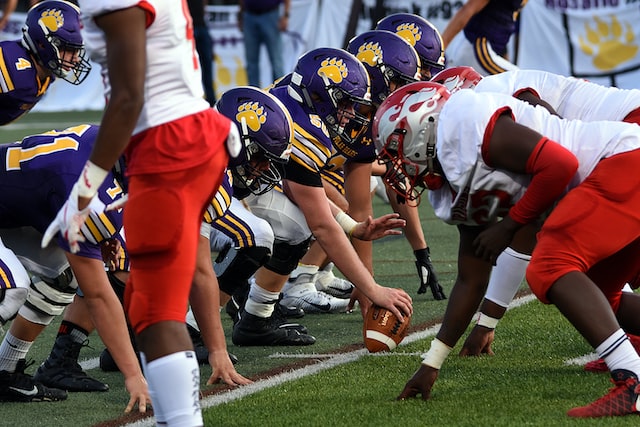
What is the definition of success? Is it a state of happiness? Or is it defined by an individual’s professional achievements? There are many different interpretations of success. But when it comes to mental coaches, success is often measured by their ability to help others achieve their goals.
Mental coaches are usually successful because they have a deep understanding of human psychology. They also update their existing knowledge by reading sport science news. They know how to motivate and encourage people to reach their full potential. They also have strong communication skills and can easily build rapport with their clients.
Successful mental coaches are usually passionate about their work and genuinely care about helping others. They are also great listeners and are always open to feedback. If you’re looking for a mental coach who can help you achieve your goals, look for someone who possesses these qualities.
Below, you can find a couple of interesting reads by other successful mental coaches that can help you develop a greater understanding on the topic of mental training for peak performance.
Grit: The Power of Passion and Perseverance by Angela Duckworth
Grit: The Power of Passion and Perseverance by Angela Duckworth is a book about the importance of having grit. Grit is defined as the passion and perseverance for long-term goals. It is the ability to keep going when things are tough and to not give up.
The book talks about how grit is something that can be learned and cultivated. It is not something that you are born with. Anyone can learn to have grit. The book provides strategies for developing grit and also talks about the importance of mindset.
Many found this book to be very inspiring. It made countless people realize that they need to work on their own grit. Most people give up easily when things get tough. If you’re one of them, this book may give you the motivation to stick with your goals even when things are tough.
Think Like a Warrior: The Five Inner Beliefs That Make You Unstoppable by Darrin Donnelly
In his book, “Think Like a Warrior: The Five Inner Beliefs That Make You Unstoppable”, Darrin Donnelly reveals the five inner beliefs that make a person unstoppable. These five inner beliefs are: having unshakable confidence in yourself, never giving up, being resilient in the face of adversity, maintaining a positive attitude, and always learning and growing.
Donnelly believes that if you want to be unstoppable in life, you must first believe in yourself. Without self-confidence, you will never achieve your full potential. Second, you must never give up. No matter how difficult things get, you must continue to push forward. Third, you must be resilient in the face of adversity. When faced with challenges, you must not allow yourself to be discouraged; instead, you must find the strength to overcome them.
The Art of Mental Training: A Guide to Performance Excellence by DC Gonazlez
When it comes to training your mind for optimal performance, there is no one-size-fits-all approach. You need to find what works best for you and stick with it. For some people, that means being very organized and structured in their approach. Others may prefer a more relaxed and informal approach.
Regardless of your preferred style, the book “The Art of Mental Training” by DC Gonzalez is an excellent guide to performance excellence. It covers all the essential topics, from goal setting and visualization to mental rehearsal and dealing with nerves. Gonzalez provides clear and concise explanations of each topic, along with practical exercises to help you put what you’ve learned into action.
If you’re serious about reaching your full potential as an athlete or performer, “The Art of Mental Training” is a book you need in your library.
Mental Toughness Training for Sports

Athletes often have to be mentally tough in order to persevere through difficult circumstances and come out on top. They need to be able to handle disappointment, deal with pain, and keep going even when they’re tired.
Mental toughness is defined as the ability to remain focused and calm under pressure. It is a critical skill for professional athletes who must be able to perform at their best when the game is on the line.
Mental toughness training is important for sports because it helps the athlete develop psychological skills in sport. These skills can include goal setting, focus, and relaxation techniques. Without these skills, the athlete will likely not perform as well as they could. Also, mental toughness training for sports can help athletes develop the mental toughness mindset, which consists of four key components: self-belief, focus, determination, and resilience.
Self-belief is perhaps the most important component of mental toughness. Professional athletes who doubt their abilities will not be able to perform at their highest level when the game is on the line. Mental toughness training can help athletes develop a strong belief in their abilities and prepare them for pressure situations.
Focus is another critical component of mental toughness. Athletes who are able to maintain their focus under pressure will be better able to execute in clutch situations.
Mental toughness training for sports can help the athlete learn how to control their thoughts and emotions during competition. It is important to be able to stay calm and focused when the game is on the line. If the athlete can do this, they will be more likely to perform at their best.
Mental toughness training can also help the athlete deal with disappointment and setbacks. It is important to be able to rebound from a tough loss or a bad performance. The ability to mentally bounce back will allow the athlete to continue improving and reaching their goals.
Another important factor is the psychological skill of an athlete. Psychological skills in sport are important. They can help you control your thoughts and emotions, focus on the task at hand, and cope with stress and anxiety. There are many different psychological skills in sport that can be useful. Some of these include relaxation techniques, mental imagery, self-talk, and goal setting.
What are mental toughness exercises for athletes?
There are specific exercises that you can do to help build mental toughness and psychological skills in sport. One exercise is visualization. This is where you take some time to close your eyes and visualize yourself succeeding in your sport. See yourself making that game-winning shot or scoring the winning touchdown. Visualization can help increase your confidence and belief in yourself, which leads to better performance on the field or court.
Another exercise is to set small goals. When you have a big goal, like winning a championship, it can seem overwhelming. But if you break it down into smaller goals, like winning each game or practice, then it seems more manageable.
Mental toughness exercises for athletes are essential in order to maintain a high level of performance. These exercises help to improve focus and concentration, while also reducing anxiety and stress. By consistently practicing mental toughness exercises, athletes can better train their minds to stay calm and composed under pressure and develop other important psychological skills in sport.
Mental Training for Peak Performance
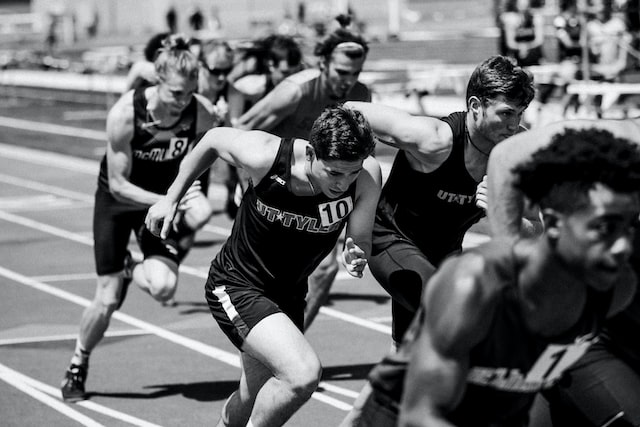
Mental training is for peak performance, what is it?
It’s a type of mental training that helps athletes to focus and maintain concentration, develop resilience in the face of setbacks, and deal with anxiety and stress. Mental training can be done through countless means. It’s simply a type of training that exercises your mind to aggregate marginal gains and achieve peak performance in sports.
The first step to take when preparing for peak mental performance is to engage in regular mental training. This can involve activities such as meditation, mindfulness, and visualization. By regularly engaging in these activities, you will train your mind to be more focused and present. Additionally, you will also learn how to better control your thoughts and emotions.
Another important aspect of mental training is learning how to manage stress. When we are under stress, our performance can suffer. Therefore, it is important to find ways to manage stress in a healthy way. This can involve things such as exercise, journaling, and relaxation techniques. By taking the time to care for yourself mentally and emotionally, you will be better prepared to handle stress when it does occur.
What Are Common Mental Training Techniques?
Mental training techniques are designed to help you improve your performance by training your mind. Some common mental training techniques include:
- Goal setting: Setting specific, achievable, and measurable goals is an important first step in any mental training program.
- Visualization: Visualizing yourself succeeding in your sport or event can help increase your confidence and motivation.
- Mental rehearsal: Mentally rehearsing the movements or steps involved in your sport or event can help improve your coordination and execution.
- Relaxation: Learning how to relax both your body and mind can help reduce anxiety and improve focus.
- Positive self-talk: Talking to yourself in a positive and supportive way can help increase your confidence and motivation.
Formal competition is not the only environment where mental training techniques can help you build mental toughness. transferable to other domains. You can use visualization, self-talk, and positive thinking in any situation where you need to overcome adversity or stay motivated.
For example, let’s say you have a big presentation at work tomorrow. You can use visualization to imagine yourself giving the presentation confidently and nailing it. This will help increase your self-confidence and make it more likely that you’ll give a great performance.
Self-talk is another useful tool for building mental toughness. When you’re feeling anxious or down about a situation, remind yourself of your past successes and of your ability to handle tough situations. This will help boost your confidence and enable you to approach the situation with a more positive mindset.
Mental training builds mental toughness. It is a formal process of learning how to control one’s thoughts, emotions, and reactions to stress and adversity. Mental training requires effort and discipline, but it pays off in terms of improved mental health and well-being.
Mental training can help you develop a more positive outlook on life, learn how to better cope with stress and adversity, and increase your overall resilience. It is important to remember that mental toughness is not about being perfect or never experiencing negative emotions. Rather, it is about learning how to effectively manage those emotions and thoughts so that they don’t take over your life.
Detailed Descriptions of the Mental Skills
There are many mental skills that people formal in order to think and remember information. These skills include:
- Paying attention: This skill is important in order to be able to focus on the task at hand and filter out distractions.
- Working memory: This refers to the ability to hold information in your mind for a short period of time and manipulate it as needed.
- Reasoning: This involves being able to quickly see relationships between pieces of information and draw logical conclusions from them.
- Problem-solving: This requires the ability to identify problems and come up with creative solutions for them.
- Decision-making: This skill is important for making choices in a timely and effective manner.
- Flexibility: This refers to the ability to adapt to new situations and change your plans as needed.
Mental training can help you improve all of these skills. By practicing attention, working memory, reasoning, problem-solving, and decision-making, you can become better at them. This will help you in all areas of your life, not just in sports or performance.
How Do I Get Started with Mental Training?
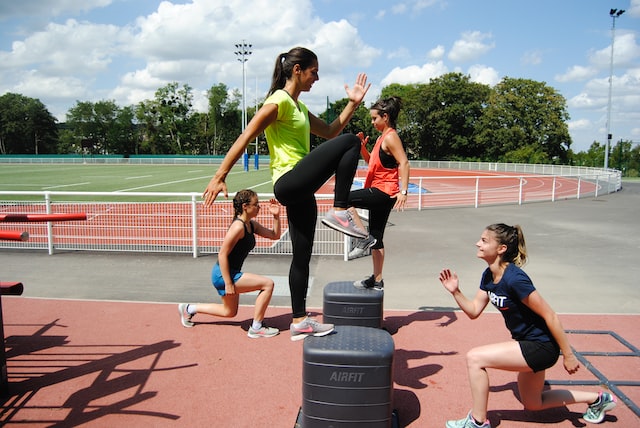
Just like you need to shower and brush your teeth every day, you also need to train your mind on a regular basis if you want to see benefits. Mental conditioning for athletes must be a regular thing if you want to see a performance improvement. You can’t just do mental training once and expect miracles – it needs to become a formal part of your daily routine.
But what exactly is mental training? It’s anything that helps improve your focus, memory, concentration, or decision-making skills. So it can be things like Sudoku, crosswords, logic puzzles, or even memorizing lists of words.
The key is to find activities that challenge you without being too frustrating. You want to push yourself just outside your comfort zone so that you’re actively engaged in the activity and not just going through the motions.
If you’re interested in mental training, there are a few ways to get started. You can:
- Read books or articles on the topic
- Find a mental training coach or program
- Take an online course
- Use mental training apps (some of them can be download from the internet using a camera scan code)
No matter how you choose to get started, the most important thing is to be consistent with your mental training. Occasionally reading science news isn’t enough. Just like with physical training, you won’t see results if you only do it seldom. You need to make mental training a regular part of your life in order to see benefits.
Mindful Sport Performance Enhancement
In recent years, there has been a growing interest in mindfulness and its potential to enhance sport performance. While the majority of research on mindfulness has been conducted with elite athletes, there is evidence to suggest that it can also be beneficial for recreational athletes and those competing in strength sports.
Mindfulness can be defined as “paying attention in a particular way: on purpose, in the present moment, and non-judgmentally” (Kabat-Zinn, 1994). When applied to sport performance, it involves being aware of thoughts, feelings, and bodily sensations in the present moment without judgment or criticism. This can help athletes to focus on the task at hand and perform at their best.
There is a growing body of research on mental training and related topics.
Use Positive Self-Talk and Mental Imagery
In order to improve your performance in any activity, it is important to use positive self-talk and mental imagery. This means that you need to tell yourself that you can do it and visualize yourself doing it successfully.
For example, if you are trying to improve your golf game, you would tell yourself that you are a good golfer and visualize yourself making the perfect shot. This positive self-talk and mental imagery will help increase your confidence and make you more likely to succeed.
Craig Sigl is a world-renowned mental toughness expert who has helped thousands of people achieve their goals. He believes that everyone has the ability to be mentally tough, but it is up to each individual to develop this skill.
If you want to learn how to be mentally tough, I suggest reading one of Craig’s books or attending one of his seminars.
Goal Setting
The ability to set and achieve goals is important in any area of life, but it is especially important in sports. After all, the whole point of playing a sport is to improve your performance and reach a higher level of competition.
There are two main types of goals that athletes should set: process goals and outcome goals. Process goals are specific, measurable, attainable, relevant, and time-bound. In other words, they are SMART goals. Outcome goals are more general and focus on the end result that you want to achieve.
For example, a process goal might be to practice your free throws for 30 minutes every day for two weeks. An outcome goal might be to make 80% of your free throws during the next game.
Concentration Development
When it comes to developing concentration, sport psychology training can be incredibly helpful. One of the best ways to train your concentration is to practice visualization exercises. This involves picturing yourself in a situation where you need to be focused and then mentally rehearsing what you need to do. By visualizing yourself succeeding in a high-pressure situation, you can help increase your confidence and focus when it comes time to perform in real life.
Another useful tool for concentration development is positive self-talk. This involves talking to yourself in a positive way before and during an event. For example, if you’re about to compete in a big race, telling yourself that you’re strong and capable of doing well can help increase your focus and performance.
Pranayama, or regulated breathing, is also a good way to develop concentration. When we focus on our breath, we are better able to control our thoughts and direct our attention. The practice of pranayama can help us to still the mind and find inner peace.
In addition to its benefits for concentration, pranayama has many other health benefits. It can help to improve our respiratory function and cardiovascular health. It can also help to reduce stress and anxiety.
Trataka, or gazing meditation, is a simple yet powerful tool that can be used to develop concentration. The practice involves fixing the gaze on a certain point, such as a candle flame, for a period of time.
The benefits of trataka are many. For one, it helps to still the mind and body, promoting a state of inner peace. It also strengthens the eye muscles and nerves, improving eyesight. Additionally, trataka increases concentration and clarity of thought.
If you are interested in trying trataka, it is important to find a comfortable place to sit or lie down in. You may also want to light a candle and place it at eye level. Then simply fix your gaze on the flame and allow your thoughts to drift away. With regular practice, you will soon find yourself better able to focus and concentrate on whatever task you set your mind to.
Finally, it’s important to get plenty of rest and relaxation leading up to an event.
Arousal Control
Arousal control is a sport psychology training technique that is used to regulate an athlete’s level of arousal or excitement. This can be done through the use of breathing exercises, visualization, and positive self-talk. The goal of arousal control is to help the athlete maintain an optimal level of performance while avoiding both under- and over-arousal.
One of the benefits of using arousal control techniques is that they can help the athlete to focus and concentrate on the task at hand. When an athlete is able to keep their arousal levels in check, it allows them to better focus on the cues and information that are relevant to their performance. This can lead to improved execution and decision-making during competition.
Another advantage of using arousal control methods is that they can help reduce stress and anxiety.
Learn Confidence-Boosting Techniques
One of the most important aspects of any sport is the mental game. If you can learn to control your thoughts and emotions, you will be well on your way to success.
It is not uncommon to feel a lack of confidence at some point in our lives. Whether it is due to an outward appearance, or simply because we do not feel like we measure up to others, a lack of confidence can have a negative impact on our mental and emotional well-being. However, there are some techniques that we can use to help boost our confidence.
One way to boost confidence is by setting small goals and then celebrating when we accomplish them. This could be something as simple as taking a new yoga class or signing up for a cooking class. By challenging ourselves and stepping outside of our comfort zones, we show ourselves that we are capable of more than we thought. Additionally, keeping a positive outlook and practicing self-compassion can also help increase our confidence levels.
When you’re in the zone, everything comes easily. The ball seems to slow down as it approaches you, and you know exactly where it’s going to go before it even gets there. It’s a great feeling, one that all athletes strive for. But what happens when you’re not in the zone? When you’re feeling anxious or unsure of yourself, the ball seems to move faster and your shots seem to go anywhere but where you want them to.
If you’re struggling with your confidence on the court or field, it’s time to try some mental game techniques. One helpful technique is visualization: picturing yourself making the perfect shot or play over and over again until you believe you can do it in real life. Another is positive self-talk: reminding yourself of your strengths and abilities when negative thoughts start creeping in.
Improve Your Mental Toughness to Benefit Your Sports Performance
Mental toughness is a trait that is often associated with successful athletes. It is the ability to maintain focus and composure in the face of adversity. Mental toughness can help athletes to perform at their best when it matters most.
There is no single formula for developing mental toughness. However, there are some things that can help. One important thing is to set goals and have a clear plan for achieving them. This can help to keep athletes focused on what they need to do in order to succeed. Another important factor is having a positive mindset. This means believing in oneself and one’s abilities, even when things are not going well.
Mental toughness is not something that comes naturally to everyone. However, it is something that can be developed with time and practice.
When it comes to sports performance, mental toughness is the key. It will help you clear your mind and mental clarity can help you maintain focus and stay positive in the face of adversity. Here are a few ways to improve your mental toughness for sports performance:
- Set realistic goals and be clear about what you want to achieve. This will help you stay motivated and focused on your training.
- Stay positive and believe in yourself. This inner belief will give you the strength to push through tough times during training or competition.
- Be resilient and have the ability to bounce back from setbacks. This will help you stay focused on your goals and not be deterred by temporary setbacks.
Qualities of Mentally Tough Athletes
Mentally tough athletes possess many qualities that allow them to succeed in their sport. They are able to control their emotions and stay calm under pressure. They have a strong belief in themselves and their abilities. They are able to bounce back from setbacks and keep going even when things are tough. They have excellent focus and concentration. They persevere when things get tough and never give up. Mentally tough athletes possess all of these qualities and more. They are the ones who always find a way to win, no matter what the circumstances may be.
What are the qualities of mentally tough athletes?
First, mentally tough athletes have the ability to control their emotions. They don’t get too high after a win or too low after a loss. Instead, they maintain an even keel and are able to focus on the task at hand.
Second, mentally tough athletes are able to block out distractions. Whether it’s noise from the crowd or their own self-doubt, they are able to focus on what they need to do in order to succeed.
Finally, mentally tough athletes possess a never-quit attitude. No matter how difficult the situation is, they continue to fight and never give up. This quality is what separates mentally tough athletes from those who succumb to pressure.
Building Champion-Level Mental Toughness
It’s no secret that in order to achieve peak performance, athletes must be mentally tough. But what exactly is mental toughness? And how can one develop it?
Mental toughness can be defined as the ability to remain calm and focused in the face of adversity. It is the ability to persevere when things are tough and to maintain a positive attitude even when things are not going your way.
Athletes need mental toughness to survive in the world of competitive sports. The pressure to perform at a high level is intense, and the ability to maintain focus and composure under pressure is essential for success. Mental toughness is the key to unlocking peak performance. It allows athletes to push through pain, fatigue, and adversity in order to achieve their goals. Without mental toughness, athletes will crumble under the pressure and be unable to reach their full potential.
First and foremost, champion-level mental toughness requires unwavering self-belief. No matter what the situation is, a mentally tough individual always believes in their ability to succeed. This self-belief allows them to push through any obstacle and come out on top.
Secondly, mentally tough individuals are able to stay calm under pressure. They don’t let their emotions get the best of them and they don’t crumble when things get tough. This allows them to perform at their best when it matters most.
So what does it mean to be mentally tough? To some, it may mean being able to withstand any type of adversity. To others, it may mean being able to maintain focus during chaotic moments. Mental toughness is relative; however, there are some common characteristics that all champion-level mental toughness possess.
If you want to find out how mental conditioning can make you a stronger person, check out this mental toughness article.
How Mental Coaches Can Add More Value To Your Mental Training?
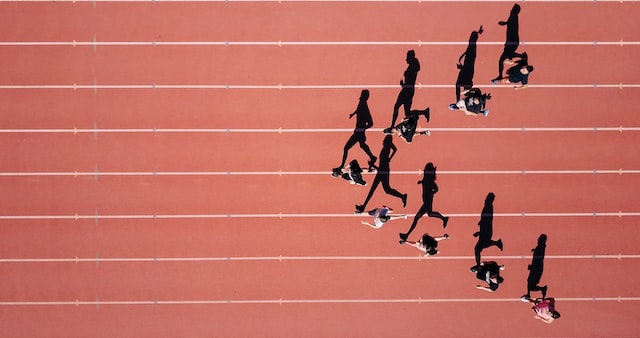
Mental coaching for athletes is surely a complex topic. Mental toughness for sports it’s not as common on social media and it’s much harder to find an experienced coach. A mental coach is a professional who helps athletes and other performers achieve their peak performance. Mental coaches work with clients to improve their focus, concentration, and motivation. They also help clients overcome any mental hurdles that may be holding them back from achieving their goals. Mental coaches are an important part of the success of many athletes and performers.
Mental coaches can help people in a number of ways to improve their performance. They can help with relaxation techniques, goal setting, and identifying and overcoming obstacles. They can also teach people how to deal with disappointment and how to stay positive during tough times.
Mental coaches can make a big difference in someone’s life. They can help them overcome challenges and reach their full potential. If you are looking to improve your performance, consider working with a mental coach.
A mental coach can help you become a better athlete by teaching you how to focus your attention and energy on the task at hand. Mental coaches are trained in the latest cutting-edge programs that can help improve your performance.
Mental coaches can help you learn how to control your thoughts and emotions so that you can stay focused on your goals. They can also teach you visualization and other techniques that will help you maximize your potential. Mental coaches regularly update their knowledge by reading science news and applying them in practice. Some of them might even be working as a faculty member because being an entrepreneur is just one side of coaching. Apart from that, there is also constant education (growth mindset), and the desire to help others.
If you are serious about becoming a better athlete, then working with a mental coach is an excellent way to improve your performance. Mental coaches can help you develop the skills and mindset that you need to reach your full potential but you must remember that mental conditioning for athletes is a serious business and not some weekend amusement. If you are truly serious about mental training for peak performance, you can try applying to my coaching program.




